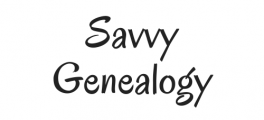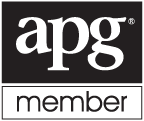How Research Plans Helped Me Get my Genealogy Goals in Shape
Hi friends! How is everyone doing this week? I’m doing great as usual! My life has been pretty normal this past week. We just got done celebrating my daughter’s birthday and I must admit that she is growing up fast! I was just looking at some of her birthday pictures and I was comparing them to her pictures taken last year. I can see the difference! Her face is changing and she’s getting taller. She is asking more thought filled questions instead of just reacting to the present situation all of the time. I see the growth in her and I rejoice!
Then I take a look at me and my past year. My mind immediately wants to go to all of the things I didn’t get accomplished or that I didn’t change my behavior the way that I wanted to. However, I accept that my mind wants to do that, but I don’t let it stay there. I answer my brain with other truths about what else I accomplished and how I grew emotionally, mentally, and maybe a little physically as well! I can now recognize the growth that I’ve done this past year and I’m excited for how I’m going to grow this year. I recognize how the Lord is still guiding my efforts as I step out of my comfort zone and do this blog. This blog is scary to me! I tell myself all the time that I don’t know what I’m doing. Then I look at this past year and I learned how to start a blog and wrote 30 blog posts in six months! That’s amazing to me! It’s all due to organizing my brain, my time, my family, and my life differently.
Speaking of organizing…
I’m on an organizing kick this month because it’s January and we all want to be more organized, right? Let me tell you what has helped me immensely in organizing my genealogy. Research plans! A research plan is a simple trick that I do first when I have a new problem to solve. Sometimes I write it down because my brain does want to jump from one task to another, however sometimes I have my plan in my head. Consider a research plan like a blueprint for a house remodel. You don’t start tearing out kitchen cabinets or floors without first putting everything on paper. You would include measurements, prices, square footage, color schemes, etc. all on paper. Then you would tackle the physical part of it.
That’s exactly what we do as genealogists. We first determine what the question is that you want answered. Is it to extend your family line four generations? Is it to find your Scandinavian ancestors? Is it to do a family reunion project or family history book? Whatever your question, write it down! Imagine that you want to learn who your great grandparents were on your father’s side. That’s step one.
Step 2 is what do you already know about your question? Do you have your grandparent’s birth information? Do you know where they lived when they were born? Do you have any photos of them or anyone you could talk with to get more information? Do you have a pedigree chart?
Step 3 is to determine what records were made during that period and where are they stored now. Let’s your grandparents were born in the 1940s in America. Therefore, ask yourself what records were made during the early 1900s that can help me find my great grandparents? You would then write down records such as the 1920, 1930, 1940 census, State censuses for that period, church records, newspaper accounts or obituaries, headstones, vital records, immigration and naturalization records, etc.
Step 4 is developing your strategy. Based on the information you already have, where do you want to go next? Now remember, you don’t know if these records actually exist yet. We’re still writing out your plan. Just write down your strategy about how you would find your ancestors. There’s no right way to find an ancestor. Each person will have their own way of following their strategy. The point is to just have a strategy so you don’t waste your time. If I was trying to find my great grandparents, then my strategy would be in this order: search all state and federal censuses, search vital records, search newspaper accounts and obituaries, search headstones, search immigration records if they immigrated. This doesn’t mean that if I find a new record during my search such as a Social Security Death Index that I can’t use that because it’s not on my strategy. It just means that my strategy got bigger and I would follow that lead until the end, then go back to my strategy and continue.
Step 5 is to DO your strategy! Start digging into these records and see what results you find. Your strategy doesn’t mean success! It doesn’t mean you’ll get the results you want. Reality is that not all the records are out there for you to find. Just like with starting your house remodel. Your plan looks great on paper, but once you pull out those kitchen cabinets, you start seeing the reality. You might see new problems you didn’t anticipate or you have to go back to your plans and rearrange things, etc. It’s the same with genealogy. Once you start on your path, don’t get discouraged when your reality doesn’t look like the one you laid out on your paper. Your research plan is there to keep you focused, organized, and efficient. Your plan ensures that no stone will be left unturned whether the results are there or not. Here is what it would look like in chart form.
| Question or Objective | Find my great grandparents |
| Known Information | Grandparents born in 1940 in Iowa |
| What Records are Available | 1920, 1930, 1940 census, Iowa state census, newspaper accounts/obituaries, headstone information, immigration and naturalization records, state vital records, church records |
| Strategy | Look in federal census records, look in state censuses, research newspapers for obituaries, look for headstone information, locate state vital records, immigration and naturalization records |
| Action/Result | Write down the actual records I found |
So how does that sound for genealogy organization! This is only one of the tools that I use to keep me organized. It works great! I do it every time I start a new project. Every time! So what do you do to keep organized? Have you tried research plans before? How did it work for you? As always, I would love to help you on your journey if you need it.
Good luck and happy hunting!
Tiffany

